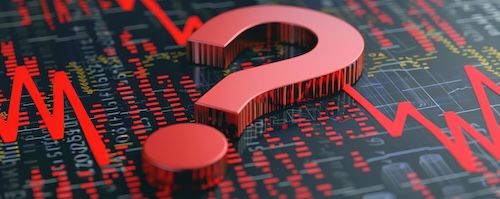Election-related Market Swings: How to Stay Ahead
Understanding the Impact of Elections on Market Swings
Elections have always been a critical event that impacts financial markets around the world. The uncertainty and potential change in political leadership can lead to significant market swings. Investors often become apprehensive during election periods, resulting in increased market volatility and fluctuations. It is essential for investors to understand the implications of elections on markets and be prepared to navigate through the turbulent times.
Factors Influencing Market Swings During Elections
Several factors contribute to market swings during elections. One of the primary factors is uncertainty. Investors might become cautious as they await the election results and potential policy changes that could affect the economy and various industries. Uncertainty often leads to heightened volatility in the financial markets.
Another factor that influences market swings during elections is market sentiment. Investor sentiment can easily be swayed by political events, particularly elections. Positive election outcomes can boost investor confidence, leading to a bullish market trend. On the other hand, negative election results can create fear and cause a sell-off in the markets.
Political stability is also a crucial determinant of market swings during elections. A stable government is generally perceived favorably by investors as it provides a conducive environment for economic growth. On the contrary, political instability can lead to market uncertainties and volatility. It is essential for investors to monitor the political landscape and understand the potential implications of election outcomes on market stability.
How to Stay Ahead During Election-Related Market Swings
To navigate through election-related market swings successfully, investors can adopt several strategies to stay ahead. One key strategy is diversification. Building a well-diversified investment portfolio can help mitigate risks associated with market volatility during election periods. By spreading investments across different asset classes and industries, investors can reduce the impact of any adverse market movements.
Monitoring market trends and staying informed about political developments are also essential for staying ahead during election-related market swings. Keeping track of election polls, policy proposals, and potential outcomes can help investors anticipate market movements and make informed investment decisions.
Maintaining a long-term perspective is crucial during election-related market swings. It is essential for investors to focus on their investment goals and avoid making impulsive decisions based on short-term market fluctuations. By maintaining a long-term outlook, investors can ride out market volatility and capitalize on investment opportunities that may arise during election periods.
Conclusion
In conclusion, elections play a significant role in influencing market swings globally. Understanding the factors that drive market volatility during elections and adopting proactive strategies can help investors stay ahead and navigate through turbulent market conditions successfully. By diversifying investments, monitoring market trends, and maintaining a long-term perspective, investors can position themselves for success and capitalize on opportunities despite election-related uncertainties.
